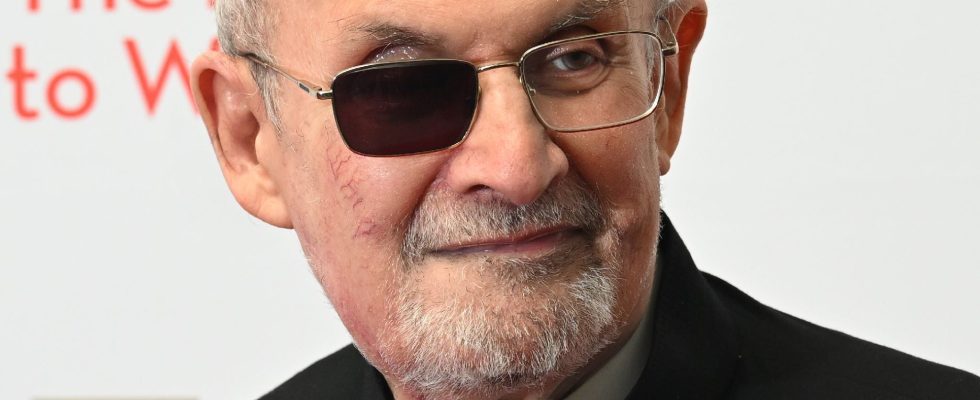A high school girl gets beaten up because she dresses in European style; a schoolboy is lynched for having exchanged remarks relating to sexuality with a girl of his age; An Algerian man is stabbed to death for consuming alcohol in public on Eid-el-Fitr. In ten days, people have been killed and injured in France for non-compliance with Muslim community standards. Despite the seriousness, we put things into perspective, we protect ourselves, we think about dodging, we talk about a “fight” around alcohol, we refer to schoolyard jealousies, these are only Arab stories in the end.
It’s an understatement to say if The knife by Salman Rushdie is welcome to open our eyes, to repeat that “living” is fundamental in this world which applauds the greatness of the martyr confusing executioners and victims in a post-Marxist style exercise. “At ten forty-five o’clock on August 12, 2022, on a sunny Friday morning in upstate New York, I was attacked and nearly murdered by a young man armed with a knife just after taking the stage at the Chautauqua Amphitheater to speak about the importance of keeping writers safe.”
The incipit of Salman Rushdie’s latest opus immediately tells us that we are on literary territory. The dramatic irony – or the prankster’s destiny – is already there, cruel and breathtaking. And for a magical realist writer, Salman Rushdie is the first surprised to discover, in the narration of the days which took him towards this tragedy, a mystique, to which he never subscribed in daily life: the nightmare that two days ago a man armed with a spear, a gladiator, attacked him in a Roman amphitheater; the poet heroine of his last novel who ends up blinded by her tormentors; the solitary conversation with the Moon the day before the attack when the image of the Selene star blinded by Méliès’ rocket imprinted itself on him.
In his “reconstruction” as a man and writer, Rushdie never abandons the literary weapon, going so far as to write “my knife is language” and to use humor, the weapon the most resistant to all tyrannies – including death. Rushdie refuses that everything is screwed up. So he laughs. When he is lying on the ground, injured, bleeding, he hears that his clothes have to be cut off to see his injuries, he says to himself “Oh, I thought, my beautiful Ralph Lauren suit”. This humor allows literature to regain its rights and reveal, by contrast, the horror of the attack: “I saw the man in black running towards me on the right side of the room. Black clothes, mask black He came loud and low, a stocky missile I admit, I had sometimes imagined my assassin rising up in some public forum or other, and coming for me that way. That’s why my first thought, when. I saw this murderous form rushing towards me, was: ‘So it’s you.
And Rushdie lost his right eye, Rushdie becoming one-eyed, like a character straight out of his novels, and who shares with the Iranian women blinded voluntarily today by the same Islamic Republic which condemned him to death yesterday, the same a wound that suddenly became a sign of refusal of death, a drive for life. Nevertheless. Because of everything. After The Satanic Verses, Rushdie resists by continuing to create a work of literature, a work of life, he has not returned to the fatwa, he has not returned to the Islamists, he has continued his singular literary path without allowing himself to be intimidated. Even his autobiography, Joseph Anton, written in the third person, is an exercise in high-level comedy. Khomeini is a comet, destructive, unhealthy, but destined to disappear with History. Never let Islamists dictate their death drive, never let them win over life-literature.
Finally, and this is not the least of his qualities, The knife is a love book, a declaration of love to his wife, Rachel Eliza Griffiths, novelist, poet and director. It may be stupid to say, but so intense to experience, and essential to not respond to hatred with hatred: love, the purest of life’s impulses, always wins in the end.
Abnousse Shalmani, committed against the obsession with identity, is a writer and journalist.
.
